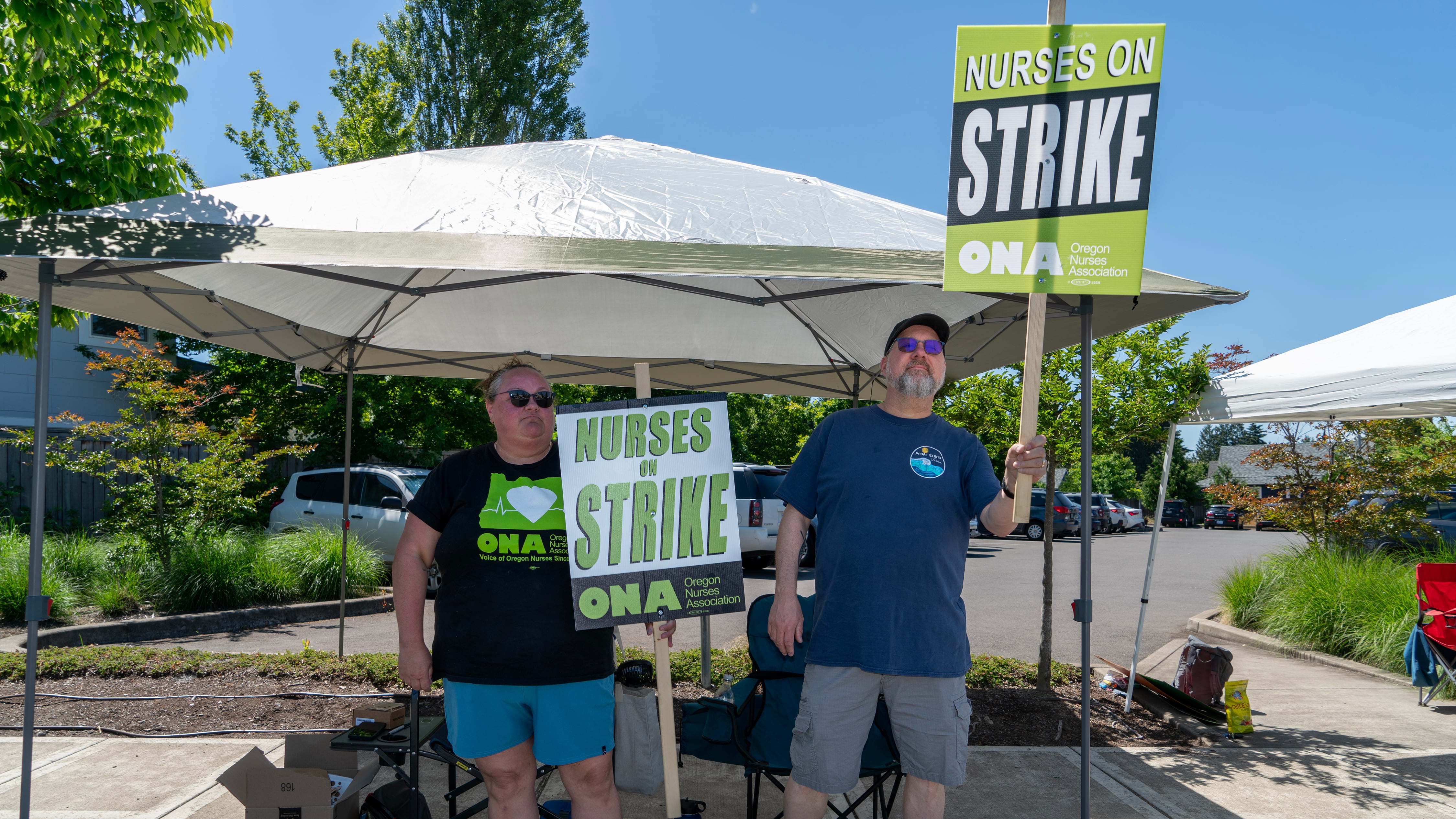Everybody can empathize with the difficulties of balancing a checkbook. Some months you forget about that automatic $10 payment to Hulu, and your bank charges you $100 in overdraft fees. Other times your front-line workers go on strike, and you wind up $261 million in the red for a quarter. The Oregon division of Providence Health & Services fell victim to the latter scenario in the first three months of 2025 (“Heaven Help Us,” WW, Sept. 17). What’s worse, the Washington-based nonprofit is down to 83 days of cash on hand—its reserves wouldn’t last the remainder of the year. What exactly is to blame for Providence’s plight? Here’s what our readers had to say:
R%N8, via wweek.com: “Hmm...they somehow managed to come up with $9 million to put their name on Civic Stadium. How much is their total marketing budget and why do they even need it? Does it enhance health care? How many more doctors and nurses could they hire with that money? The total compensation for Providence Health and Services CEO Greg Hoffman was over $3.5 million for 2024—one year. How much are the other executives making and how do their extravagant salaries enhance health care? We spend twice as much per capita as any other industrialized nation yet our health metrics are abysmal. Enough of this nonsense. Stop profiteering off of pain and suffering.”
Jayden, in response: “Great, you have identified $12.5 million in savings. Where do you propose the other $250 million comes from? We could eliminate entirely the total compensation of 100 more executives at $3.5 million apiece (not that there even are 100 more executives making as much as Hoffman) and we still have $215 million to go. Health care remains largely a people-to-people proposition, meaning labor and benefit costs for health care providers and workers are going to be significant. Post-pandemic, labor and benefit costs for health care workers have gone up significantly (along with medical equipment and supplies). Legislation passed in Oregon on staffing and financial assistance for low-income patients have also hit hospital costs hard. These are all big cost drivers and probably where at least 70-plus percent of the cost increases in the system have been. Highly trained and qualified professionals (and I’m not talking about just physicians here) command high wages and benefits. Aging demographics and health care worker shortages will only exacerbate these trends. Technology efficiencies and smart immigration policies are also just a few tools that will be needed to constrain continued double-digit cost growth.”
Rachel Carpenter, via Facebook: “Providence’s massive losses from the strike were entirely an avoidable own goal. It might add some nuance to this reporting to note that Providence walked away from and refused to come back to the negotiating table without substantial pressure from Oregon lawmakers. The enormous amounts of money hemorrhaged is the result of a decision made by the organization.”
PortlandProud, via wweek.com: “It feels like there is more to the story about the strike than is being told here. What would the cost to the hospital be without the increased wages to nurses in the form of turnover and replacement staff? What would the cost be to patient care? We already have Canada advertising on billboards in downtown Portland, trying to lure nurses and providers to their nonprofit system. In a commercial system where skilled labor is in high demand, employers have to pay for it or costs increase and service suffers.”
Anna Dye, via Facebook: “Providence helps the poorer people in the community. When I lost my job and had no insurance, I unfortunately injured both knees snowboarding (back country). I applied for financial assistance at every hospital as I could barely walk. None of the local hospitals would help other than Providence. I qualified for the 100% assistance. IDK why the other hospitals in the area would not or could not provide any help. Yes, Providence did screening to ensure I really needed the help. Every three months, I had to send in updated info and bank account statements showing financial need.
“Thanks to Providence, I made a full recovery and was able to get back to work. No other hospital in the area was going to do that. I am forever grateful to Providence.”
Letters to the editor must include the author’s street address and phone number for verification. Letters must be 250 or fewer words. Submit to:
P.O. Box 10770
Portland, OR 97296
Email: amesh@wweek.com

